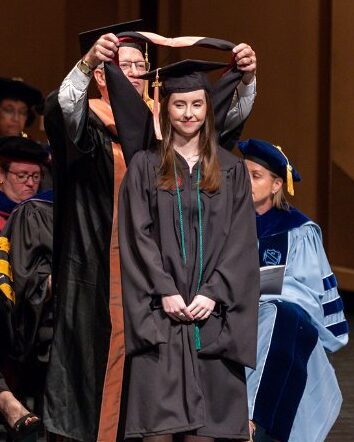Core Competencies
MCH Certificate Program’s Core Competencies
The six competencies listed below are covered and evaluated in the three core classes. These concepts reflect the knowledge and skills required to be an active member of the MCH workforce. Upon successful completion of the coursework, students will be able to:
- Foundational knowledge: Recognize and describe the scope of maternal and child health (MCH) and critically analyze determinants of health of persons having and/or raising children, children, adolescents, and families at various socio-ecological levels across the life course.
- Practice: Demonstrate capacity to respond to evolving MCH issues, include and integrate MCH populations from diverse backgrounds, evaluate existing strategies, and implement MCH programs by working with communities and federal, state, and local agencies and systems.
- Research: Apply quantitative and/or qualitative research methods to examine and address issues related to the health and well-being of MCH populations.
- Policy: Assess MCH policies and devise evidence-based policy recommendations by critically analyzing existing theories and evidence.
- Cultural competency: Develop knowledge and skills necessary to communicate and interact effectively with all persons from diverse groups.
- Leadership: Communicate, collaborate, and coordinate MCH research, policy, and practice by incorporating family-centered, community-based, equity-focused, and interdisciplinary concepts and strategies.
The above competencies address the following MCH Leadership competencies:
- MCH knowledge base/context
- communication
- Critical thinking
- Cultural competency
- Family-professional partnerships
- Interdisciplinary/interprofessional team building
- Working with communities and systems
- Policy
Lauren McAbee at her ASPH hooding ceremony wearing her MCH Certificate graduation cord.

